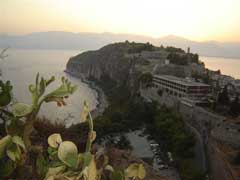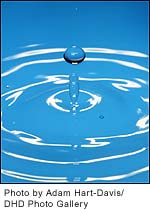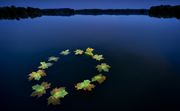 Towards a circular economy: a zero waste programme for Europe
Towards a circular economy: a zero waste programme for Europe
The European Commission adopted the Communication "Towards a circular economy: a zero waste programme for Europe" and annex to establish a common and coherent EU framework to promote the circular economy. Turning Europe into a more circular economy means:
- boosting recycling and preventing the loss of valuable materials;
- creating jobs and economic growth;
- showing how new business models, eco-design and industrial symbiosis can move us towards zero-waste;
- reducing greenhouse emissions and environmental impacts.
As part of the circular economy package, the Commission also adopted a legislative proposal to review recycling and other waste-related targets in the EU and annex. Achieving the new waste targets would create 180 000 new jobs, while making Europe more competitive and reducing demand for costly scarce resources. The proposal aims to:
- Increase recycling/re-use of municipal waste to 70% in 2030;
- Increase packaging waste recycling/re-use to 80% in 2030 with material-specific targets set to gradually increase between 2020 and 2030 (to reach 90 % for paper by 2025 and 60% for plastics, 80% for wood, 90% of ferrous metal, aluminium and glass by the end of 2030);
- Phase out landfilling by 2025 for recyclable (including plastics, paper, metals, glass and bio-waste) waste in non hazardous waste landfills – corresponding to a maximum landfilling rate of 25%;
- Reduce food waste generation by 30% by 2025;
- Introduce an early warning system to anticipate and avoid possible compliance difficulties;
- Ensure full traceability of hazardous waste;
- Increase the cost-effectiveness of Extended Producer Responsibility schemes by defining minimum conditions;
- Simplify the reporting obligations and lighten obligations affecting SMEs;
- Harmonise and streamline the calculation of the targets and improve the reliability of key statistics;
- Improve the overall coherence by aligning definitions and removing obsolete legal requirements.
More information on waste policy and legislation review
To help the circular economy become reality, the Commission adopted other initiatives, such as proposals for sustainable buildings, green employment andgreen action for SMEs.
Key documents:
- Press release: Higher recycling targets to drive transition to a Circular Economy with new jobs and sustainable growth
- Questions and answers on the Commission Communication “Towards a Circular Economy”
- Communication "Towards a circular economy: a zero waste programme for Europe" and annex
- Legislative proposal to review recycling and other waste-related targets in the EU and annex
- Ex-post evaluation of Five Waste Streams Directives - Commission staff working document
- Sustainable buildings
- Green employment
- Green action for SMEs
What is a circular economy?
Since the industrial revolution, waste has constantly grown. This is because our economies have used a “take-make-consume and dispose” pattern of growth – a linear model which assumes that resources are abundant, available and cheap to dispose of.
What we need is a more circular economy. This means re-using, repairing, refurbishing and recycling existing materials and products. What used to be regarded as ‘waste’ can be turned into a resource. All resources need to be managed more efficiently throughout their life cycle.
Using resources more efficiently will also bring new growth and job opportunities. Better eco-design, waste prevention and reuse can bring net savings for EU businesses of up to EUR 600 billion, while also reducing total annual greenhouse gas emissions. Additional measures to increase resource productivity by 30% by 2030 could boost GDP by nearly 1%, while creating 2 million additional jobs.
Moving towards a circular economy is at the heart of the resource efficiency agenda established under the Europe 2020 Strategy for smart, sustainable and inclusive growth. The main ideas on how to do more with less are being taken further in the EU's Environment Action Programme to 2020.
The European Commission's 'Generation Awake' campaign on resource-efficiency focuses on what each one of us can do in our daily life to save water, energy and other natural resources, and turn waste into a resource.
Circular economy, saving resources and creating jobs are the main themes of Green Week 2014, the biggest annual conference on European environment policy.
More information:
- Publication: The circular economy - connecting, creating and conserving value
- EU's approach to waste management
- Roadmap to a Resource-Efficient Europe
- Online Resource Efficiency Platform (OREP)
- Report: Scoping study to identify potential circular economy actions, priority sectors, material flows & value chains
| Contact information | n/a |
|---|---|
| News type | Inbrief |
| File link |
http://ec.europa.eu/environment/circular-economy/ |
| Source of information | EC DG Environment |
| Keyword(s) | MED-3R, solid waste management |
| Subject(s) | AGRICULTURE , ANALYSIS AND TESTS , ENERGY , FINANCE-ECONOMY , HEALTH - HYGIENE - PATHOGENIC MICROORGANISM , INDUSTRY , INFORMATION - COMPUTER SCIENCES , INFRASTRUCTURES , MEASUREMENTS AND INSTRUMENTATION , METHTODOLOGY - STATISTICS - DECISION AID , NATURAL MEDIUM , PREVENTION AND NUISANCES POLLUTION , RIGHT , RISKS AND CLIMATOLOGY , SANITATION -STRICT PURIFICATION PROCESSES , TOOL TERMS , TOURISM - SPORT - HOBBIES , WATER QUALITY |
| Relation | http://www.semide.org/initiatives/med-3r |
| Geographical coverage | n/a |
| News date | 08/10/2014 |
| Working language(s) | ENGLISH |
 you are not logged in
you are not logged in





